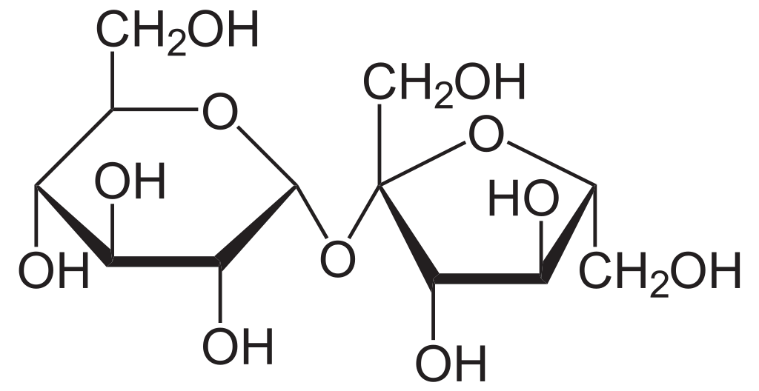Question
Question: Write T for the correct statement and F for the wrong statement in a sequence. a) Oil can easily m...
Write T for the correct statement and F for the wrong statement in a sequence.
a) Oil can easily mix with water.
b) Sugar and salt do not dissolve in water.
c) Salt is made from seawater.
d) Sugar and salt do not dissolve in hot water.
(A) FFTF
(B) FFFF
(C) TFTF
(D) FFTT
Solution
To solve this question, we need to verify each of the statements given above regarding the solubility of compounds. The ability of a substance (or the solute) to dissolve in a liquid (or a solvent) to form a solution is known as solubility. Aqueous solutions are made when a solute is dissolved in water.
Complete answer:
a) The statement that oils can easily mix with water is false.
This is because the bonds that hold together water (liquid) are hydrogen bonds. Since there are no polar parts in oils, they need to break the hydrogen bonds in water to dissolve in it.
But since the hydrogen bonds are strong, the water molecules are more attracted to each other instead of the oil molecules, and hence oils and water do not mix easily.
b) The statement that sugar and salt do not dissolve in water is false.
We know that salts are ionic chemical compounds that contain cations (positively charged ions) and anions (negatively charged ions) such that the molecule is electrically neutral.
Since these are extremely polar substances, they are easily soluble in polar solvents like water, as they dissociate into their constituent cationic and anionic components.
Now, sugar is water-soluble carbohydrates that have a sweet taste and are generally used in food.
For example, the most common sugar is a disaccharide carbohydrate named sucrose or table sugar and it contains glucose and fructose. Its structure is as follows

We can see that the molecule has bonds between the hydrogen atom and the oxygen atom (like water), and the charge difference between these atoms makes it a polar molecule. Hence it dissolves in polar solvents like water.
- The statement that salt is made from seawater is true.
The ions, sodium Na+ , and chlorine Cl− make up about 90% of the dissolved ions present in seawater. Hence the evaporation of seawater produces salts and most table salt NaCl.
- The statement that sugar and salt do not dissolve in hot water is false.
We have already established that salts and sugars are soluble in water. Now, since with an increase in temperature, solubility increases, hence sugars and salts are soluble in hot water.
So, the correct answer is option (A) FFTF.
Note:
It should be noted that
- Oil can be dissolved in water using an emulsifier. The hydrophobic end of the emulsifier surrounds the oil molecules and the hydrophilic end is exposed to water, hence making the components miscible.
- The solubility of a solute decreases with a decrease in temperature.
